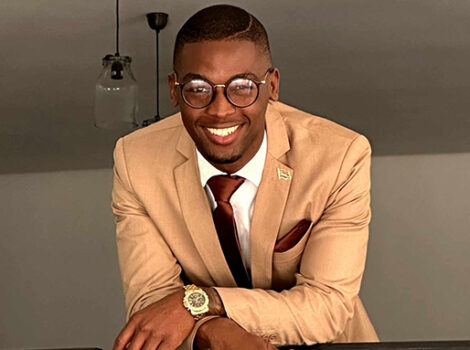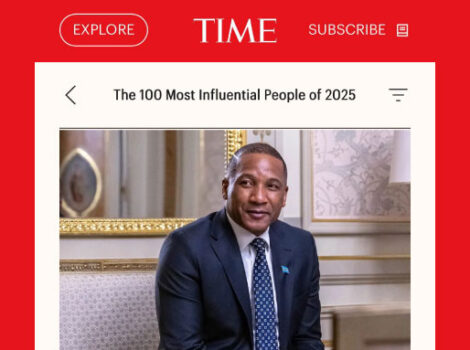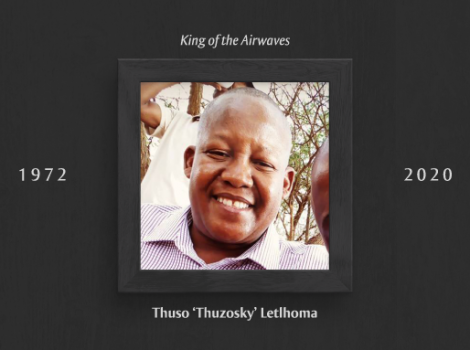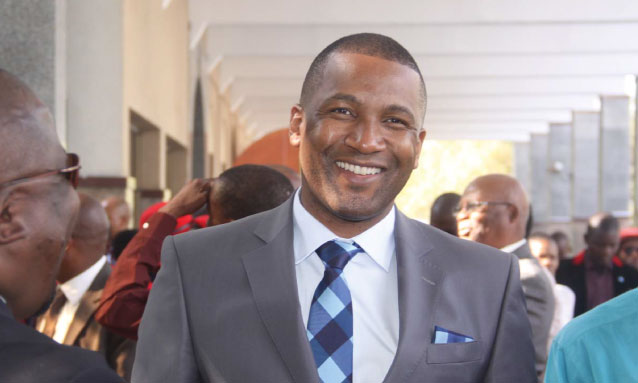
12 November 2024
The electoral defeat delivered to the Botswana Democratic Party led by Mokgweetsi Masisi was met with incredulity in neighbouring states. Not many expected the party that had run the country comfortably since independence in 1966 to be so roundly defeated in the national elections on 30 October 2024.
Of the 61 seats in the national assembly, the Umbrella for Democratic Change coalition won 36 seats, the Botswana Congress Party 15. The Botswana Patriotic Front won five seats, the Botswana Democratic Party four, and an independent candidate won one seat. Batswana cast their ballots for opposition leader Duma Boko, who is largely unknown outside the country.
Who is he? What does he stand for, what challenges does he face in his new role? The Conversation turned to David Sebudubudu, a political scientist at the University of Botswana, for answers.
Who is Duma Boko and what does he stand for?
Duma Boko is the leader of the Botswana National Front and president of an opposition coalition, the Umbrella for Democratic Change. He played a crucial role in the process of forming the coalition in 2012 by three political parties: the Botswana National Front, the Botswana Movement for Democracy and the Botswana People’s Party. For the 2024 elections, the coalition included the Botswana National Front, the Alliance for Progressives and the Botswana People’s Party.
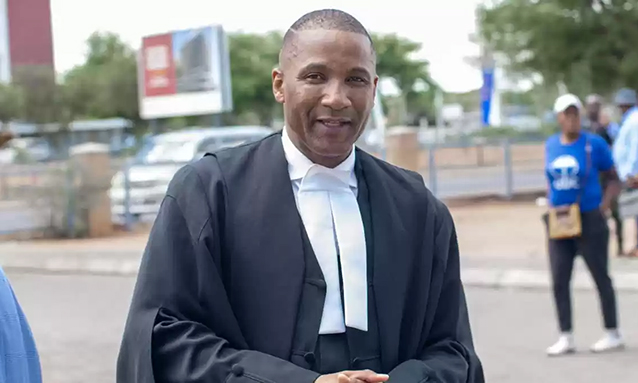
Boko is a human rights lawyer who is considered a social democrat. He read law at the University of Botswana and at Harvard Law School. He was raised in a modest family in Mahalapye, a village 200km from the country’s capital, Gaborone.
The country of 2.5 million has very high levels of unemployment, at 27.6%, as well as poverty, at 38%. His campaign pledges suggested that he stands for and identifies with the lower economic strata of society.
One of his key messages was a promise to diversify and transform the economy from over-reliance on minerals, particularly diamonds, which account for 90% of exports. He also promised to raise the basic pay, students’ allowances and old-age pensions. He pledged to make matters afflicting the youth a priority as around 70% of the country’s population is below 35 years old.
As a constitutional and human rights lawyer, Boko has emerged as a leader who is keen to advance social justice. And owing to his training, he preaches a humane approach to issues confronting the nation. He has lived and practised respect for human rights, especially the rights of the downtrodden, including the Basarwa (the San) – the indigenous people of Botswana.
What challenges does he face?
Boko’s government is taking charge of a country with underdevelopment challenges. The two biggest are unemployment and poverty, which intensified under Masisi’s government.
The other critical challenge is corruption, which escalated under Masisi and came to define his time in office as some of his relatives benefited from government tenders. Institutions that were meant to ensure transparency and accountability were muted or ineffective. In addition, the Directorate on Intelligence and Security Services began to operate as a law unto itself and was considered to have gone rogue.
There were reports that it obstructed investigations by the Directorate on Corruption and Economic Crime, among others, of those considered politically connected. And there were reports that it had assumed roles outside its mandate, such those of the police, and the corruption and economic crime directorate. Masisi, who also stood accused of corruption, took no action. He has denied the allegations.
Institutions that were meant to provide accountability, such as the Directorate on Corruption and Economic Crime and the judiciary, were weakened or compromised under his government through interference.
What will it take for Boko to succeed?
Until around the mid-2000s, Botswana was widely lauded by international agencies and observers for its positive economic and social indicators relative to its peers. Yet, a significant proportion of its population has been left out, due to neo-liberal policies pursued by the ruling party since independence. Boko’s government needs to devise new strategies to fight poverty and unemployment.
Secondly, Boko’s government needs to unite the nation, which became increasingly divided as the ruction between Masisi and former president Ian Khama escalated. The Directorate on Intelligence and Security Services was at the centre of their friction. Masisi was considered in certain quarters to make government appointments on regional (and tribal) lines.
Thirdly, Boko needs to restore trust and credibility in government and its institutions, including the judiciary. Trust is low. This requires revamping institutions that ensure transparency and accountability in government, containing the rogue intelligence directorate and ending wasteful expenditure and corruption.
Fourth, his government needs to transform the economy to create jobs. This is critical as he assumes power at a time when the diamond market is subdued. It is the country’s largest revenue earner.
These challenges do not have a simple solution. They will require that his government consult citizens in order to carry them along. Effective checks and balances must ensure the transparency and accountability that eluded the previous government.
Source: https://theconversation.com/botswanas-new-president-who-is-duma-boko-and-what-does-he-stand-for-242963
About the author: David Sebudubudu, Professor, University of Botswana.

